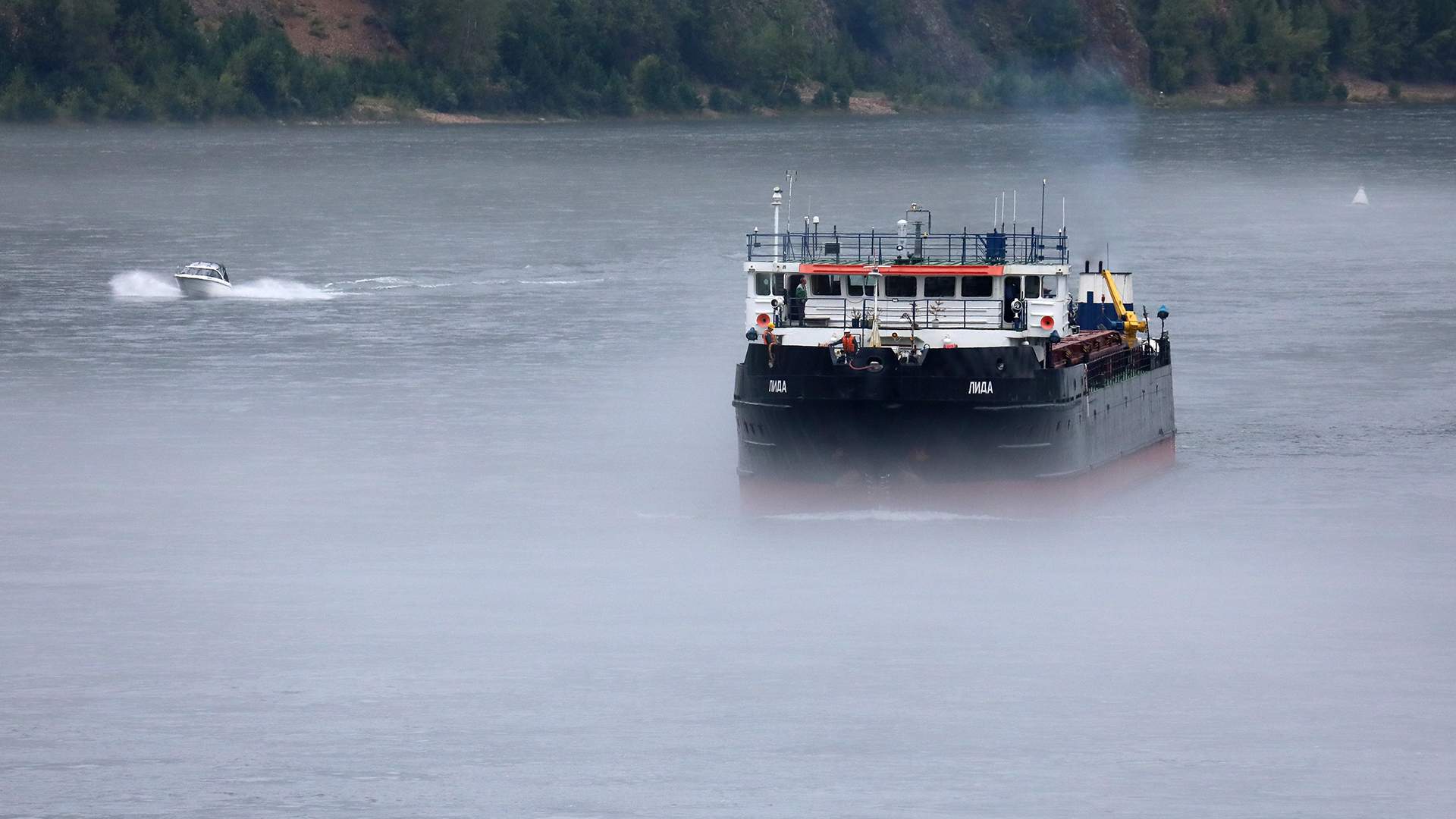Stretch the river: Russia will improve the infrastructure of waterways

The development of river transport will make it possible to balance the increased burden on other types of transportation against the background of sanctions and the reorientation of trade flows, said Nikolai Patrushev, Assistant to the President of the Russian Federation, Chairman of the Maritime Board. This is especially true as Russia's cooperation with Asian countries expands. In addition, the integrated use of water resources and waterways will help achieve the national development goals of the Russian Federation. About the potential of river transport in the economy of the Russian Federation — in the material of Izvestia.
How river transport is developing in Russia
Due to Western sanctions against Russia, the diversification of logistics routes remains relevant. It was the development of inland waterways and increasing their efficiency for transportation that became the topic of the meeting of the Council of the Maritime Board for the Development and Support of Maritime Activities in Russia on March 11.
Inland waterways can play an important role in the development of international trade relations of the Russian Federation. They are capable of ensuring the efficient operation of transport corridors, including the Northern Sea Route, Nikolai Patrushev, Assistant to the President of the Russian Federation and Chairman of the board, said at the meeting.
— Against the background of the ongoing sanctions pressure on Russia and the reorientation of trade flows eastward, the burden on other modes of transport is increasing. And it is river and sea transport that must balance the excessively increased burden on rail and road transport," Patrushev said.
He stressed that the country's defense capability, the transit potential of the Russian Federation and, in general, the solution of various transport tasks largely depend on the state and effective use of inland waterways. This applies, among other things, to the connectivity of territories, the development of hydropower, land reclamation, water supply to settlements, and flood prevention.
We have all the necessary resources to solve these problems. Inland waterways with a total length of over 101 thousand km pass through the territory of 60 subjects of the Russian Federation. They operate 741 navigable hydraulic structures, said Sergey Vakhrukov, Head of the Council for the Development and Support of Maritime Activities of the Russian Federation, Head of the Presidential Office for National Maritime Policy.
Work is already underway to improve navigation conditions. Over the past four years, almost 10,000 km of obstacles to ships have been eliminated. Thus, it was possible to increase the capacity of inland waterways by 12 million tons.
At the same time, traffic volumes are decreasing compared to the Soviet period. According to Vakhrukov, if in 1980 almost 500 million tons of cargo were transported along the rivers, then in 2024 - only 90 million tons. Passenger traffic has also decreased by 10 times.
Therefore, much more needs to be done for the development of river transport, for example, to continue to clear shipping routes, bring hydraulic structures to a standard state, modernize infrastructure in ports and access roads. It is also necessary to upgrade the fleet of the river fleet, including vessels of the river-sea class, Nikolai Patrushev noted.
Why inland waterways are important for Russia
River navigation is one of the important ways of both passenger and cargo transportation in Russia. Nikolai Patrushev stressed that inland waterways are more than 1.5 times longer than federal highways. Moreover, about 80% of such routes do not even have an alternative in terms of delivering people and goods, including ensuring accessibility in the northern regions. Only the integrated use of available water resources and waterways will help achieve Russia's national development goals, concluded the Chairman of the Maritime Board.
Russia's national development goals were approved by presidential decree dated May 7, 2024 for the period up to 2030 and for the future up to 2036. In particular, the national project "Efficient Transport System" was launched to implement them in the field of transport. Its goal is to create a unified transport network that is convenient and accessible to all.
It is necessary to develop waterways, among other things, due to the reorientation of the Russian economy towards the Asian direction: against this background, cargo traffic to the Far East has increased significantly, for example. Thus, over the past 10 years, it has doubled along the Northern Sea Route, said Gadzhimagomed Huseynov, First Deputy Minister for the Development of the Far East and the Arctic.
There are also historical reasons for the attention to the development of river transport, since the Ancient Russian state was founded precisely around large waterways, and rivers in the country's history played the role of transport routes, said Vladimir Shapovalov, a political scientist and deputy director of the Institute of History and Politics at Moscow State University.
— Currently, river transport is receiving a serious development impetus, it is becoming a natural link in inter—regional communication, - the expert emphasized.
In some cases, river transport can be not only a successful addition, but sometimes also a substitute for land and air transport. Do not forget that Russian rivers are part of the largest transport corridors in the world. For example, the Volga belongs to the North–South railway, which connects St. Petersburg and Mumbai and includes 14 countries. And the Amur River serves as the border between Russia and China, connecting the economies of neighboring countries, Shapovalov concluded.
Переведено сервисом «Яндекс Переводчик»
